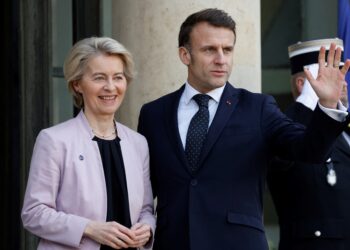Brussels – Donald Trump has been in office just a month and has already disrupted international politics. Especially on the dossier of the war in Ukraine, he has caught his European allies off guard, effectively excluding them from negotiations for an end to hostilities (but shifting responsibility for peacekeeping onto them). In the Old Continent, the bewilderment is total.
With timidity, some voices are beginning to arise in a haphazard manner. However, there is still no real strategy to react to the blows that the US president is unleashing in a mad dash: not only on the last three years of stars-and-stripes foreign policy but on the very international order that Washington had built after World War II.
Trump-Zelensky head-on clash
In fact, Trump has done the bulk of the work within a single week. That is, since he called on the phone the Russian counterpart Vladimir Putin without coordinating with either the Ukrainian leader Volodymyr Zelensky or the European allies (or presumed so). Defeat across the board of his predecessor’s Joe Biden approach: rehabilitation of Russia after three years of diplomatic isolation and door in the face to Kyiv’s membership in NATO, with an accompanying threat to close the taps of military aid to the invaded country.
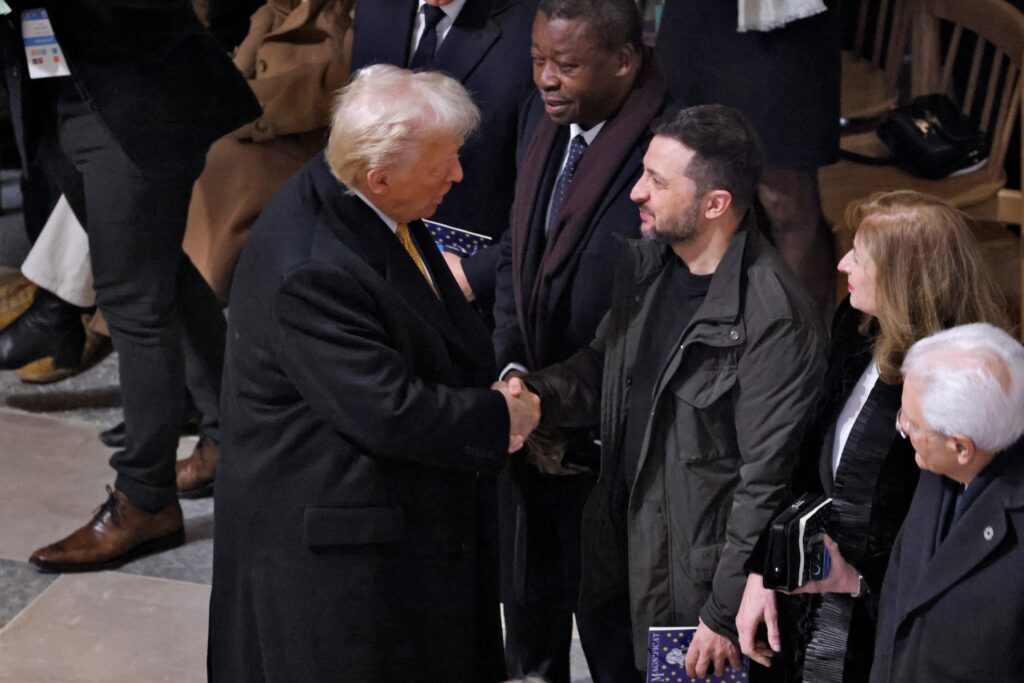
In recent days, relations between the White House and the Ukrainian leadership have plummeted. A verbal escalation culminated with the most powerful man in the world (free and otherwise) calling the leader of the former Soviet republic an “unelected dictator.” The latter was elected before the war (and not replaceable as long as martial law is in force, as the Ukrainian Constitution dictates). To lecture him on democracy, the instigator of the assault on the Capitol on January 6, 2021, stemmed precisely from his inability to accept the outcome of a completely democratic and legitimate election.
U.S. National Security Adviser Michael Waltz suggested that the Ukrainians should “tone it down and sign the agreement” on rare earths proposed by his boss, called “the best” security guarantee for Kyiv. Zelensky declined the offer, claiming he cannot “sell out” his country.
A new Jalta?
Europe was also caught in the middle of friendly fire. The technical rehearsals of a thaw between Washington and Moscow on stage in Riyadh froze, however, the European chancelleries. Not only because, after three years of repeating that nothing can be decided on Ukraine without them—and without Kyiv—they have effectively been cornered by Trump, who considers Putin his only interlocutor.
But also because, by making explicit the U.S. disengagement from the continent, the U.S. president has essentially deprived it of the main guarantor of its security. Its architecture will now have to be redesigned from scratch for the first time since 1945. A new Jalta, 80 years after the original. With the difference that, this time, Europe has no Winston Churchill to send to the table.
The weak European response
And it was precisely the iconic British leader who was brought up by one of the few who, albeit in cautious and circumstantial tones, had the courage to sympathize with Zelensky. “A democratically elected leader,” described him Keir Starmer, the current tenant of Downing Street, according to whom it is “perfectly reasonable” to suspend elections in wartime, as Churchill did precisely.
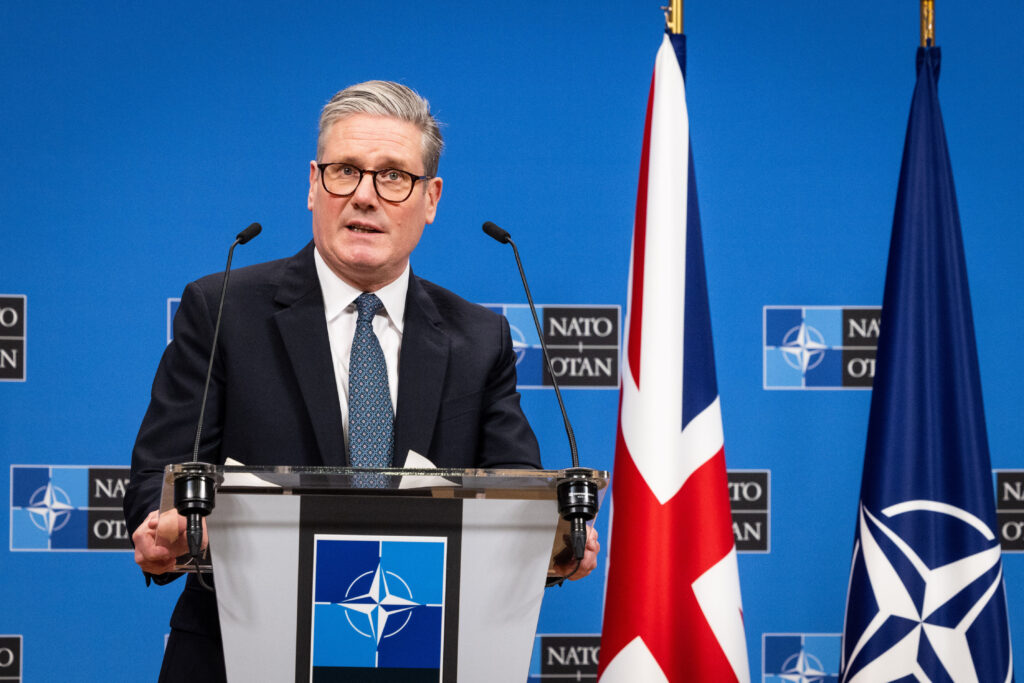
The prime minister will fly to Washington “next week” to try to reopen a channel of dialogue with the White House. And to put on the table the possibility of an Anglo-French interposition force in Ukraine to monitor the line of an eventual ceasefire on condition that an “American cover” is provided. Emmanuel Macron is also expected to travel to the U.S. capital after having, in the past few days, hastily organized in the transalpine capital two unofficial summits between European leaders (one Monday and one yesterday) to coordinate a reaction to the Trump earthquake. Goal missed.
Yesterday evening, it was outgoing German Chancellor Olaf Scholz who had branded the US president’s insinuations as “wrong and dangerous,” while other Scandinavian leaders also took the side of Zelensky (Danish PM Mette Frederiksen, Swedish PM Ulf Kristersson and Norwegian PM Jonas Gahr Støre). Deafening, on the other hand, is the silence of Giorgia Meloni, forced into a difficult balancing act between her staunch support for Ukraine (which has allowed her to make herself presentable in Europe in recent years) and the role of “bridge” between the two sides of the Atlantic, claimed for herself by the premier by virtue of her political proximity to Trump.
Unexplored territory
For the time being, NATO Secretary General Mark Rutte pours oil on troubled waters. The former Dutch premier said he was “somewhat irritated” by the attitude of European leaders who complained that they were not involved in the negotiations. His suggestion: “Organise yourselves, be at a table, whatever exactly this table entails.” The praise is for the Elysée initiative. “The important thing,” he says, “is that somehow, in Europe, we discuss how to organize security guarantees in Ukraine.” Rutte admits the timeframe will not be short but said he was “happy that at least we have stopped whining and have started to act, to agree.”
We are entering an unexplored territory, and no one knows how to move. Brussels lacks a figure of high enough political stature to confront Trump. High Representative Kaja Kallas, to whom even the Treaties would seem to entrust such a role, has been mute on the issue for days. Even more scandalous considering that she was appointed as a “hawk” on Ukraine.
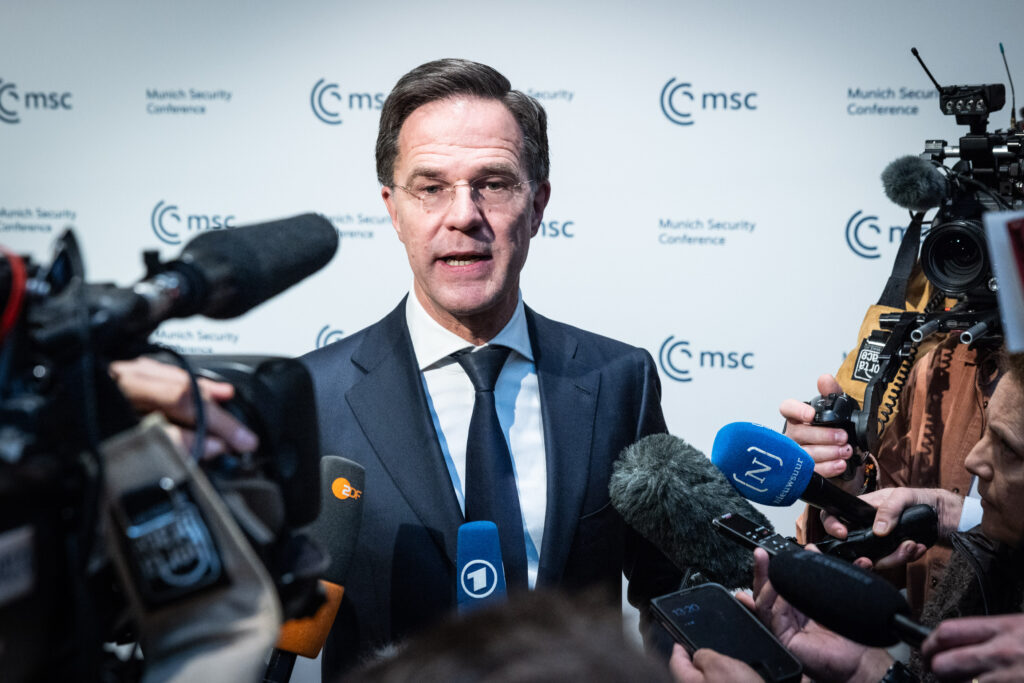
European Council President António Costa is reportedly in constant contact with the Twenty-Seven heads of state and government to organise an emergency summit (the next one would be scheduled for March 20). According to reports from EU officials, one will be convened only when there is reasonable confidence that results will be achieved (and best wishes to get Hungary and Slovakia—who have also complained about their exclusion from the Paris summits—to agree).
At the EU level, the 16th package of sanctions against the Kremlin is being fine-tuned, while German Foreign Minister Annalena Baerbock announced a huge plan of military aid for Ukraine that would be worth as much as €700 billion, a figure never before disbursed by either Washington or Brussels (or the two together).
Kyiv at the centre of the action
But for the time being, it’s a free-for-all. In addition to Starmer’s and Macron’s visits to the United States, there will be that of Costa and EU chief executive Ursula von der Leyen to Kyiv next Feb. 24 to mark the third anniversary of the large-scale Russian invasion. The Commission simply notes that “Zelensky was legitimately elected in free, fair, and democratic elections” and that “Ukraine is a democracy, Putin’s Russia is not.” Something obvious, one would say, but these days better to be sure.
Meanwhile, Keith Kellogg landed in the Ukrainian capital. On paper, he is the White House’s special envoy for the Russia-Ukraine crisis. Still, it seems Trump is putting him on the back burner compared to another special envoy (as well as his golfing partner), Steve Witkoff, who, however, is supposed to be in charge of the Middle East. Malignants say that Kellogg would be sidelined because the Russians dislike him. Witkoff is the architect of the historic agreement between Israel and Hamas in mid-January, and it seems he will also play a crucial role in the negotiations with the Kremlin, which not coincidentally began in Saudi Arabia.
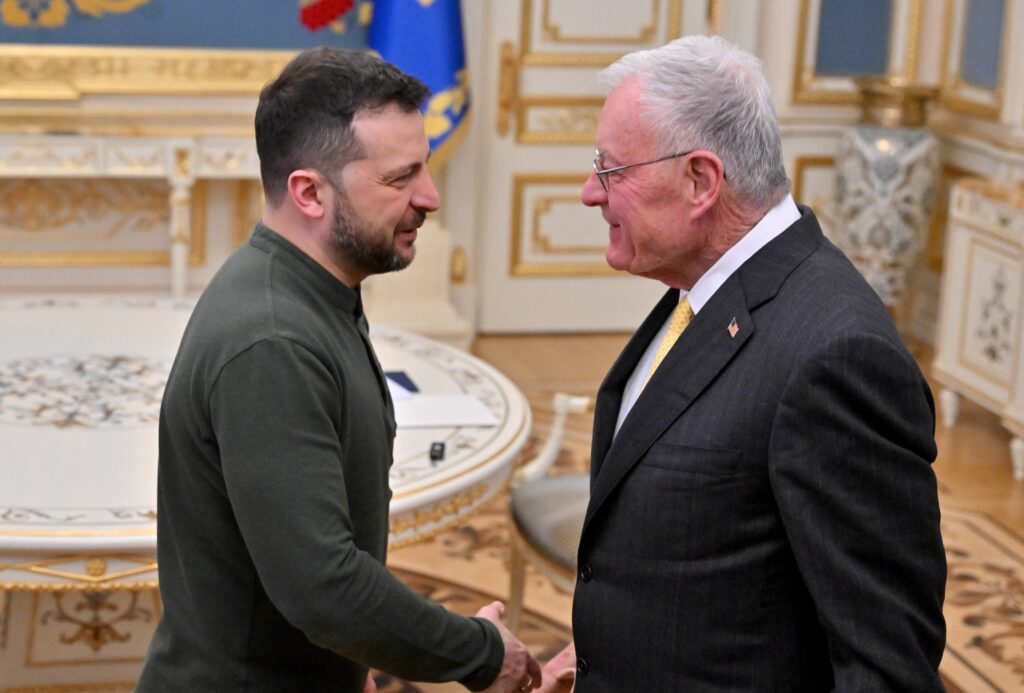
“I affirmed Ukraine’s willingness to reach peace through force and our vision for the necessary steps,” commented Kyiv Foreign Minister Andrii Sybiha after meeting with Kellogg. At this time, he is still speaking with Zelensky, while the joint press conference initially scheduled at the end of the meeting was cancelled. Earlier this week, the Ukrainian president met his Turkish counterpart Recep Tayyip Erdoğan in Ankara, who would like to offer himself as a mediator instead of the Saudis.
English version by the Translation Service of Withub




